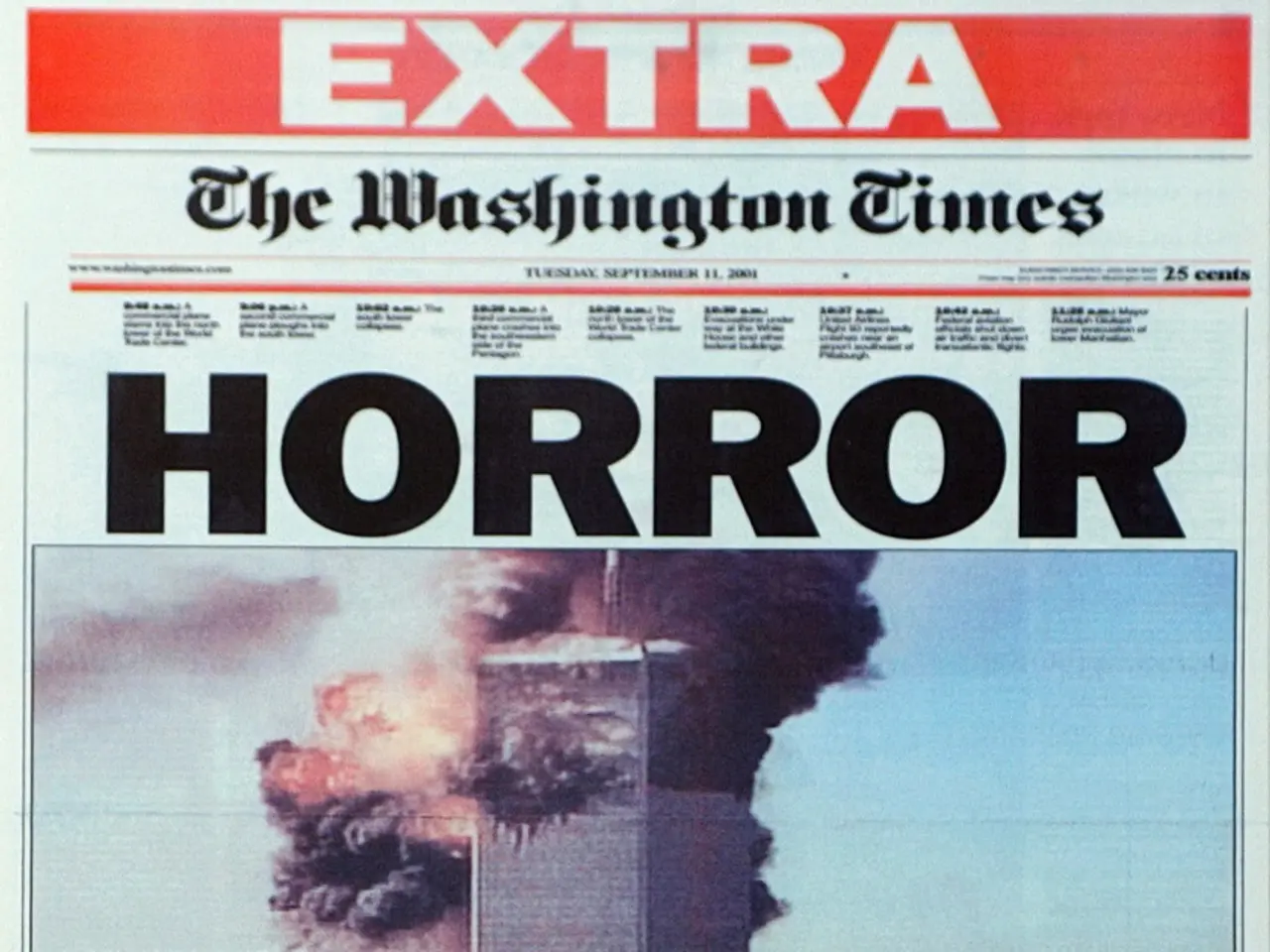Devastating Aftermath of Nuclear War: Examination by Annie Jacobsen
In an increasingly interconnected world, the threat of nuclear war looms large, with potential devastation that could shake the very foundations of civilisation. The United States, along with other global powers, has a robust early warning system in place to detect and respond to any signs of nuclear aggression.
The U.S. Defense Department's early warning system, SBIRS, consists of satellites positioned one-tenth of the way to the moon, capable of detecting ICBM launches within fractions of a second. This system, along with ground-based radars, airborne detectors, and a multi-layered network of sensors, forms the nerve center for strategic warning. This integrated sensor network, continuously modernized and increasingly incorporating artificial intelligence, is designed to provide timely and reliable detection of missile launches and other signs of nuclear aggression.
However, despite these advances, the very short flight times of missiles mean that response windows remain narrow. Early detection and seamless communication are essential but not infallible.
If these warnings fail to prevent escalation, the consequences would be catastrophic. Immediate destruction and high fatality rates from blast effects would be followed by severe long-term health effects from radiation exposure. Wide environmental contamination due to radioactive fallout would also occur, depending on whether the detonations are airbursts or surface bursts.
Societal collapse triggered by infrastructure destruction, disruption of governance, food and water shortages, and potential nuclear winter effects that could impact global climate and agriculture would follow. Political and military destabilization, including possible escalation to full-scale global conflict, would further exacerbate the situation.
Civil defense measures, such as seeking immediate shelter indoors or in dedicated fallout shelters, can significantly reduce radiation exposure and casualties in the event of a nuclear explosion.
Despite the effectiveness of these early warning systems, prevention through diplomacy, deterrence, and stable international relations remains paramount to truly avoid nuclear war. As nuclear weapons engineer Garwin warns, it only takes one nihilistic madman with access to a nuclear arsenal to initiate global catastrophe.
In the worst-case scenario, the nuclear catastrophe might be remembered as divine intervention rather than human folly, with the accumulated knowledge of generations potentially fading into mythology. The ensuing nuclear winter would claim billions more through starvation, creating a global catastrophe unprecedented in human history.
In the aftermath of a nuclear strike, survival would become an individual endeavor, and the breakdown of social order would expose the raw edges of human nature. Civilisation as we know it would collapse without rule of law or civil society, leading to a regression to a hunter-gatherer existence.
As we stand on the brink of a new era, it is crucial to remember the grim reality of nuclear war and to strive for a world where such a catastrophe is never realised.
- The field of technology, particularly in space and astronomy, plays a crucial role in the early detection of nuclear missile launches, with satellites being placed one-tenth of the way to the moon.
- The General-news media often covers stories about the current state of medical-conditions, including potential long-term health effects from radiation exposure caused by nuclear warfare.
- In the realm of education and self-development, courses on investing and business could prepare individuals to rebuild shattered economies after a nuclear catastrophe.
- The sports industry, although seemingly unrelated, might face disruptions due to infrastructure destruction and disruption of governance in the aftermath of a nuclear strike.
- The entertainment world could produce content that raises awareness about the consequences of nuclear war, promoting peace and diplomacy to prevent such incidents.
- In the face of nuclear war, weather forecasts would become essential for those surviving in the aftermath, providing information about potential radiation levels and the onset of a potential nuclear winter.




